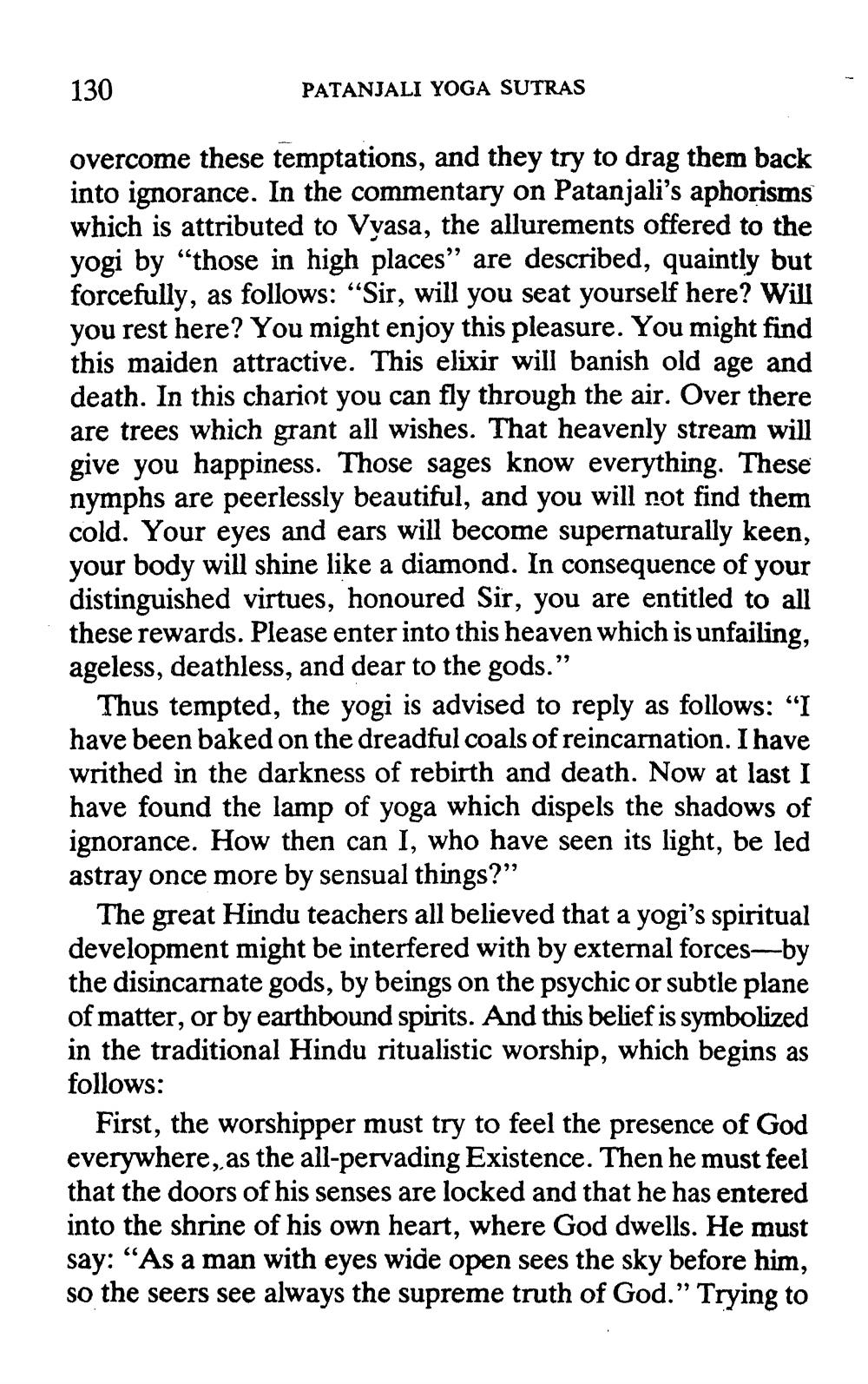________________
130
PATANJALI YOGA SUTRAS
overcome these temptations, and they try to drag them back into ignorance. In the commentary on Patanjali's aphorisms which is attributed to Vyasa, the allurements offered to the yogi by “those in high places” are described, quaintly but forcefully, as follows: “Sir, will you seat yourself here? Will you rest here? You might enjoy this pleasure. You might find this maiden attractive. This elixir will banish old age and death. In this chariot you can fly through the air. Over there are trees which grant all wishes. That heavenly stream will give you happiness. Those sages know everything. These nymphs are peerlessly beautiful, and you will not find them cold. Your eyes and ears will become supernaturally keen, your body will shine like a diamond. In consequence of your distinguished virtues, honoured Sir, you are entitled to all these rewards. Please enter into this heaven which is unfailing, ageless, deathless, and dear to the gods.”
Thus tempted, the yogi is advised to reply as follows: “I have been baked on the dreadful coals of reincarnation. I have writhed in the darkness of rebirth and death. Now at last I have found the lamp of yoga which dispels the shadows of ignorance. How then can I, who have seen its light, be led astray once more by sensual things?”
The great Hindu teachers all believed that a yogi's spiritual development might be interfered with by external forces_by the disincarnate gods, by beings on the psychic or subtle plane of matter, or by earthbound spirits. And this belief is symbolized in the traditional Hindu ritualistic worship, which begins as follows:
First, the worshipper must try to feel the presence of God everywhere, as the all-pervading Existence. Then he must feel that the doors of his senses are locked and that he has entered into the shrine of his own heart, where God dwells. He must say: “As a man with eyes wide open sees the sky before him, so the seers see always the supreme truth of God." Trying to




